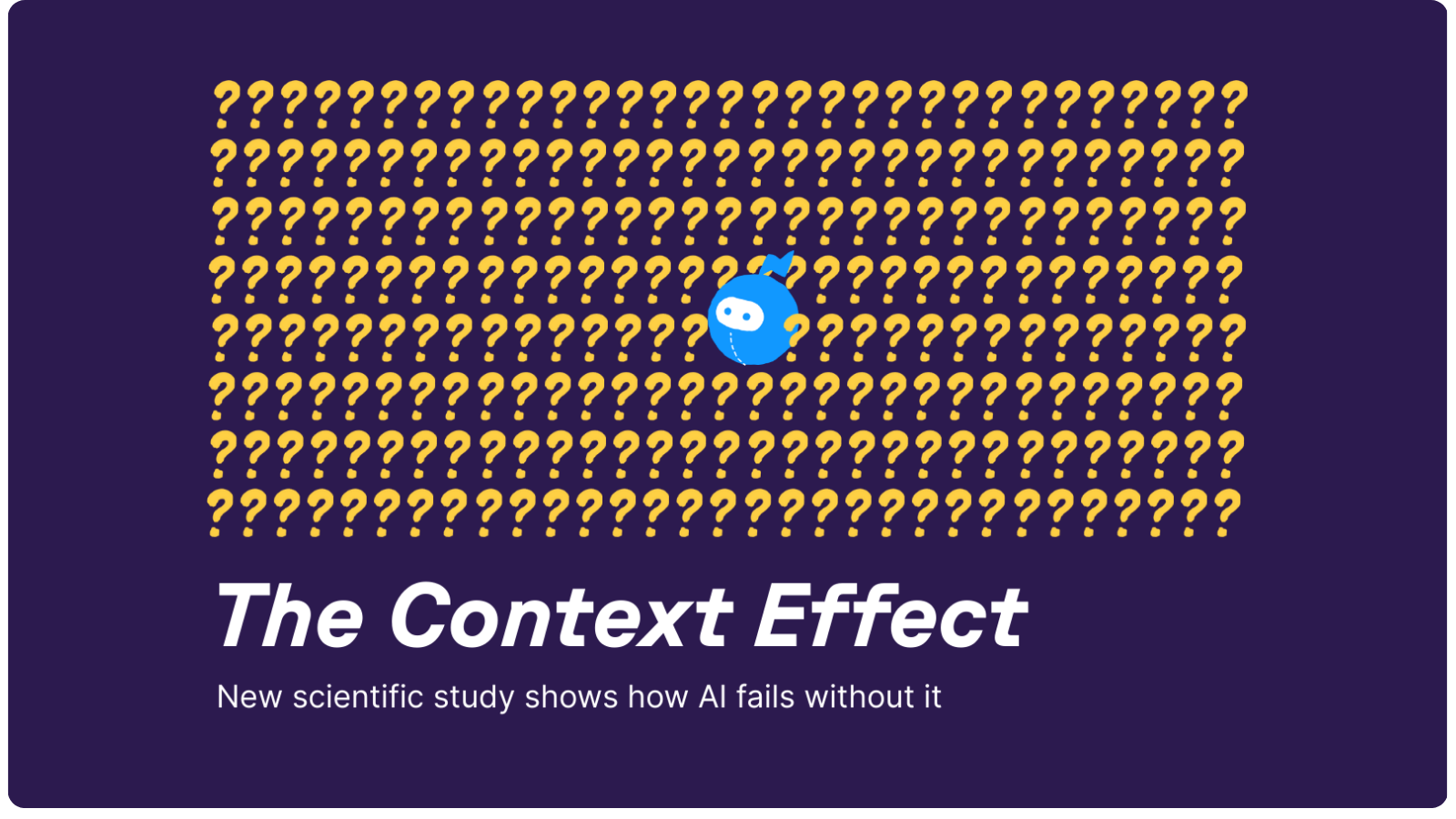When AI doesn’t work as promised, the knee-jerk reaction is usually that the model isn’t good enough.
And maybe that's simply a product of our psychology: "this tool isn't working, it's the tool's fault!" seems like a pretty logical application for most use cases.
But according to a new 2025 study from Germany's prized Karlsruhe Institute of Technology, the real reason is simpler — and more solvable. AI doesn’t fail because it’s weak. It fails because it’s blind.
The study, titled Human Delegation Behavior in Human-AI Collaboration: The Effect of Contextual Information, asked a straightforward question: how do humans decide when to delegate a task to AI?
The answer turned out to be way less about algorithms and more about the information humans had on hand.
Without the right context, people misjudged when to trust AI and when to handle tasks themselves.
With context, they made smarter delegation decisions and teams performed better overall.
What the researchers found
The study design was beautifully simple. Participants were asked to decide whether to classify income data themselves or hand the task over to an AI.
Four groups were tested:
- A control group that received no extra information.
- A group that was given data context (how certain features were distributed).
- A group that was given AI context (how accurate the model was under different conditions).
- A final group that received both data context and AI context.
The findings? Shocking. Striking. Gobsmacking.
When participants received no context, delegation was inconsistent and often totally ineffective. When they got only one type of context, performance didn’t improve much. But when they had both forms of context together, human-AI collaboration improved significantly.
People were able to judge task difficulty, assess AI reliability, and delegate accordingly.
In short, the “context effect” was real: AI became a reliable teammate only when humans were given a full picture of both the data and the machine.
Why this matters for your Salesforce org
If this sounds familiar, it should. Salesforce users face the same problem every day. CRMs are bursting with automations, dependencies, and customizations — but without context, AI agents in Salesforce can’t be trusted.
They either act too aggressively and break things, or they hold back and fail to deliver useful impact.
Just like the participants in the study, Salesforce admins and operators need both sides of the context coin:
- Data context: Which objects, fields, and workflows actually matter? How are they distributed and connected?
- AI context: What will an automation really do? Which dependencies are safe to touch, and which will trigger cascading failures?
Without this knowledge, delegation to AI is just more guesswork. With it, humans can trust AI to handle the right tasks, and AI can operate within the guardrails of context.
Metadata as the missing piece here
So where does this context come from in Salesforce? The answer is metadata.
Metadata defines how Salesforce works — not just the data you see, but the rules, automations, and relationships that sit underneath it. It tells you not just that a field exists, but what it connects to. Not just that a workflow is firing, but how it impacts other objects and processes.
In other words, metadata is that context layer.
Without it, AI is left oblivious. With it, AI can see the system clearly, anticipate outcomes, and act with confidence.
The Karlsruhe study validates what Sweep has been saying all along: context isn’t a nice-to-have. It’s the difference between AI as a liability and AI as a true, reliable teammate.
How Sweep delivers the context effect
Sweep is the visual workspace that makes Salesforce metadata visible, governable, and ready for AI collaboration.
We map your org’s objects, fields, automations, and dependencies so humans and AI alike can operate with clarity. That means:
- Admins and operators can understand the impact of every change before they make it.
- AI agents can act on metadata-aware systems, where their actions are grounded in context.
- Delegation stops being risky guesswork and becomes a safe, scalable way to accelerate work.
By giving Salesforce both data context and AI context — the same combination that produced better performance in the study — Sweep creates the conditions where human-AI collaboration actually works.
The takeaway
The Karlsruhe study proved what many admins and ops leaders already know instinctively: AI needs data AND context. Humans make far, far better delegation decisions when they have both sides of the picture. AI becomes more reliable when it can see the system it’s acting in.
In Salesforce, metadata is that very picture. It’s the connective tissue that gives data meaning and AI its guardrails. Without it, AI fails. With it, AI and humans can finally operate as a team.
That’s the context effect — and it’s why metadata is the key to making Salesforce AI succeed.

